Are You Liberated? And What That Means For Habit Change
ARE YOU LIBERATED? AND WHAT THAT MEANS FOR HABIT CHANGE (ISSUE 88)
By Diane Gold
YOU ARE LIBERATED
“You are liberated,”
was the response I got when my student asked me my age, and I told her with no hesitation. She then responded that she doesn’t share her age. Her withholding her age is part of a social more that is, in my opinion, holding us from being liberated.
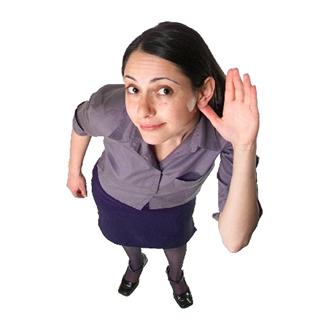 Hearing these words brought back a whole series of memories starting with a story my mother told me about her childhood. Now, I know that I have always been an explorer and that if a rule or tradition didn’t make sense to me, I always questioned it. I was encouraged to do so by both my parents.
Hearing these words brought back a whole series of memories starting with a story my mother told me about her childhood. Now, I know that I have always been an explorer and that if a rule or tradition didn’t make sense to me, I always questioned it. I was encouraged to do so by both my parents.
Let’s go back to my mom. She was extremely free, meaning that she didn’t live by societal rules that were empty, prejudiced and thoughtless. She was ahead of her time, realizing her self-worth as more than a housewife and a mother. She was a great example of the Women’s Liberation Movement that was prevalent in my youth in the 60s, even though she was not from that generation. And she passed it on to me.
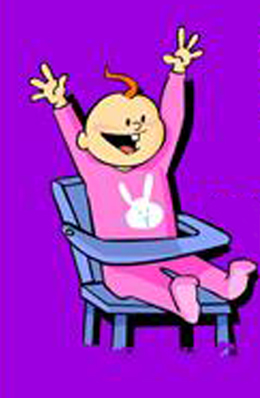 So, let’s backtrack to when my mom was one-year-old. (This photo is not my mom. Because of her free spirit, I believe she would laugh if she saw this representation. This photo is used with lots of love and memories of nurturing.) She told me that she loved to see a plate break on the floor, that she would laugh with abandon at this phenomenon. Maybe it was the excitement of seeing the pieces scatter. It was a favorite activity, nonetheless. And my grandfather used to buy her plates so that she could knock them off her highchair so that she could laugh and be free. Yes, he was liberated, too.
So, let’s backtrack to when my mom was one-year-old. (This photo is not my mom. Because of her free spirit, I believe she would laugh if she saw this representation. This photo is used with lots of love and memories of nurturing.) She told me that she loved to see a plate break on the floor, that she would laugh with abandon at this phenomenon. Maybe it was the excitement of seeing the pieces scatter. It was a favorite activity, nonetheless. And my grandfather used to buy her plates so that she could knock them off her highchair so that she could laugh and be free. Yes, he was liberated, too.
My grandfather was a great fan of the second-hand store, which we now know as the thrift store. I got some of my most precious toys from his jaunts to this type of store. Apparently, this is the kind of store from which he bought plates for my mother to break. He was encouraging of her happiness and thought this would make her a free and happy human being.
Most parents would discipline their children away from this type of behavior at this young age. Of course, at some point, my mother was taught that plates are for eating and not for throwing. But the freedom she had in her formative years surely affected her. I firmly believe that this type of childhood education allowed my mother to be the free and happy spirit she was.
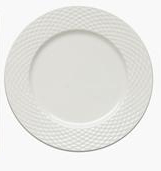 I did not throw plates, but I was encouraged to be my own person, ask questions about anything for the purpose of becoming a productive and liberated person. I can’t swear that my parents were thinking of the word “liberation” when they were raising me. They just saw no need to teach me to be seen and not heard as was and still is a popular method of child-rearing. Personally, I think this method can repress a child’s spirit and disable a child’s curiosity. Respect for elders and familial hierarchy can be taught in many ways, but free speech, in my opinion, should begin at the earliest of ages.
I did not throw plates, but I was encouraged to be my own person, ask questions about anything for the purpose of becoming a productive and liberated person. I can’t swear that my parents were thinking of the word “liberation” when they were raising me. They just saw no need to teach me to be seen and not heard as was and still is a popular method of child-rearing. Personally, I think this method can repress a child’s spirit and disable a child’s curiosity. Respect for elders and familial hierarchy can be taught in many ways, but free speech, in my opinion, should begin at the earliest of ages.
This leads me to the idea that when people are repressed due to upbringing, they tend to end up with less than even temperament, such as bossy or submissive. These traits usually cause some sort of life tension.
OLD-SCHOOL CLARIFICATION
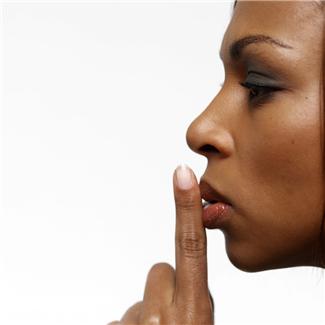 Let me clarify that many people raised in the “be seen and not heard” old-school philosophy are successful, happy, shining and wonderfully balanced. There are, however, many of us raised with restrictions every time we turn around, such as don’t speak unless we are asked a question, always be available as a servant to our parents, all friends must be researched for family stature and then brought to the house for approval; we are often stressed, repressed and depressed because of it. Certainly, we are rarely liberated and feel the pain of not being trusted.
Let me clarify that many people raised in the “be seen and not heard” old-school philosophy are successful, happy, shining and wonderfully balanced. There are, however, many of us raised with restrictions every time we turn around, such as don’t speak unless we are asked a question, always be available as a servant to our parents, all friends must be researched for family stature and then brought to the house for approval; we are often stressed, repressed and depressed because of it. Certainly, we are rarely liberated and feel the pain of not being trusted.
I’m not suggesting that all parents should buy plates for their kids and let them toss a plate from the high mount, the highchair. I’m also aware that there’s no proof this plate activity had the huge influence on my mom that it could have since this event does not have a control subject meaning we had life-long data on another subject of my mother’s age who wanted to throw plates and was restricted from doing it. My mother was one of the most balanced human beings I ever met, and her father assessed the wonderful laughter that came from this plate activity as good for her.
NON-SUPPORTIVE PARENTS
Many parents, due to frustration, money problems or runoff behavior from their parents, may not treat us well as children. These actions certainly shape us and affect the way we see the world. They do not have to define us.
RESULTS
For those of us who wish to keep what we have been given in our upbringing, this is our choice. We have to notice whether it is hurting us or not. I am the first one to say that traditions which are the habits of our family or tribe can be bolstering, rooting, unifying. However, if these habits or the perceptions from these habits hurt us, action would be a good choice.
THE LIST
Here is a sample list of habits developed from society or upbringing. These may or may not support our lives. When there is anxiety attached to any of these, action may be in order. Action is liberation.
1) We hide our age because we will be judged by it. Unfortunately, society does judge us by age. Revealing age out loud helps us adjust to it. It also can reduce the amount of judgment initiated about such a superficial trait.
 2) We don’t speak up due to our self-image. This usually has to do with the fact that we are younger, older, the minority sex in the group, the wrong sexual orientation, a woman whose place (in in someone else’s mind) is in the home, the wrong nationality, religion or socio-economic level.
2) We don’t speak up due to our self-image. This usually has to do with the fact that we are younger, older, the minority sex in the group, the wrong sexual orientation, a woman whose place (in in someone else’s mind) is in the home, the wrong nationality, religion or socio-economic level.
Today’s New York Times talked about scientific studies of how people who lived in poverty in their early years maintain the scars of this experience their whole lives and live shorter lives as a result. Unless they address their feelings.
3) We maintain a stance of submission. When we have been encouraged to be silent and non-assertive or when our families have ridiculed us, we have not worked at our assertive selves. Much like debate class prepares us to speak up, speaking out as children gives us the experience we need. If we have not been encouraged to do so, the repetition necessary to learn to be assertive may be missing. And, often times, it is easier to stay with what we know. Even if it eats at us.
ACTION STEPS FOR LIBERATION
1) Define one of the habits you have that causes discomfort. Do so by writing it down in a one or two paragraph statement. This can be solely for you, so there is no need to hold back.
 2) Once you have the habit defined (let’s say, for example, that you don’t speak because of past negative reinforcement), go to the mirror in the morning and say to yourself,
2) Once you have the habit defined (let’s say, for example, that you don’t speak because of past negative reinforcement), go to the mirror in the morning and say to yourself,
“I restrict myself from speaking because my parents told me I wasn’t a good speaker. This is totally incorrect. I am a good speaker, and I am a valuable human being.”
3) Repeat this mirror behavior in the evening and alone, possibly when you are in the bathroom.
4) Repeat this morning and evening mirror work for a week.
5) If you have successfully completed a week, write a paragraph about your new found comfort with yourself. This paragraph is not dependent upon whether you feel the comfort level or not.
6) Read the paragraph in the mirror. An example paragraph might be,
“I certainly feel confident in myself. I can read this paragraph well. I know the more I read it, the more comfortable I will become. The more I feel good about my ability to speak, the smoother it will sound. The smoother it sounds, the more I will want to speak more openly. The more I speak more openly, the more ability I will obtain. I am a good speaker, and I am a valuable human being.”
7) Read this paragraph once or twice a day for a week.
8) If you have succeeded at reading for a week, add a week.
9) If you have succeeded at two weeks, add a third week. Feel free to change the paragraph that you are reading.
10) Know that you have taken the step has become your new habit.
CONCLUSION
When we are held down by our habits, whether from the constant memory of a family member or a bully saying we are worthless, or having to act like a Cinderella servant, we repetitively are trapped experiencing the same feelings over and over again. We take on habits we don’t even know we have, and they form us. 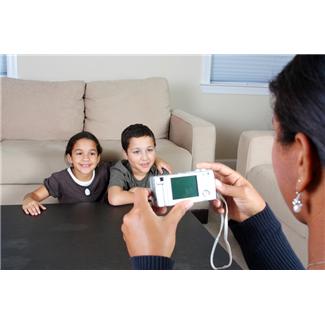
Sometimes, we don’t realize we have them until we are passing them on to our children. Only then do we recognize how influential our childhood was and how impressionable we were to have kept a habit that does not positively support our life.
There is always time to change a habit. The beginning only takes one step. Just as the mind can be liberated in one thought, it is the one step that starts the process. If we are not liberated as we read this and we choose to be, we can liberate ourselves now by taking one step. We must be patient with ourselves since our habit was not made overnight. We must repeat the step until it becomes familiar. Slowly, the step will become the habit, and the reward will be there.
____________________________________________________________________
FEEDBACK
Please leave a comment and LIKE.
DIANE GOLD, AUTHOR
Diane Gold, Founder of Warriors of Weight, Turning Habits Into Health, is a mentor in tai chi, kung fu and meditation, a music, fitness and stress expert, dedicated mom, studying plant-based nutrition.
She has always believed it is almost as important to free ourselves inside as outside. There are ways to proceed that can make it easy. She says,
“It is devastating for people who do not have their physical freedom. But, for those who do, it is important to work on our inner freedom. Through small, continual steps, we can have this. No exclusive technique or direction is needed, only that we work on ourselves in some way. A little bit every day.
“This work can be done in honor of those who do not have their physical freedom and in hopes that we can all live with some freedom, inside and out.”







